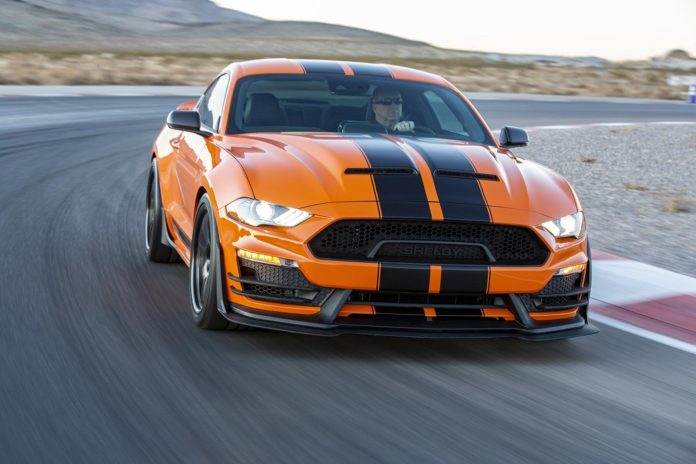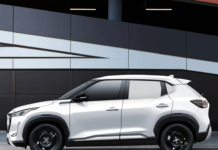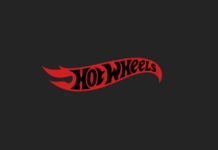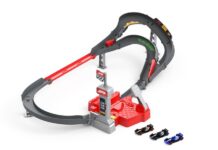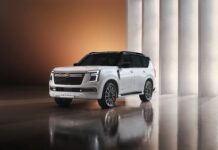Supercharged Mustangs weren’t always a regular sight on our roads or racetracks, like they are today. Early power upgrades to the iconic Mustang usually consisted of smaller, internal modifications to Ford’s legendary V8, and often suited to motorsport.
The Mustang’s competitiveness at racing events around the globe caught the eye of renowned engineers like the Texan-born Carroll Shelby who, under his company Shelby American, spent time developing a supercharger conversion to enhance the Mustang’s existing characteristics and sporty persuasion. His dedicated work soon yielded a powerful combination that cemented Carroll’s reputation beyond that of a racing driver and endeared him to all muscle car enthusiasts.
It is on this annual Global Mustang Day, 17 April, that Ford South Africa chooses to honour 55 years since Carroll Shelby, in 1966, produced the first commercially-available supercharged Mustang: the iconic and sought-after Shelby GT350 Fastback.
Fitted with a Paxton supercharger that forced increased airflow through the factory 460-cfm carburettor, Shelby claimed that power was 46 percent higher compared to models without the supercharger. What made the claimed 0-100km/h time of under six seconds and a top speed over 240km/h even more impressive is that the Mustang retained the standard 4-speed gearbox and very few other modifications were needed to cope with the extra power. However, to demonstrate the significant gains beyond all doubt, Carroll Shelby arranged a drag race between this and a Shelby Cobra Roadster. When the GT350 won in convincing style, Carroll Shelby placed an order of 500 Paxton superchargers and defined the Mustang and Shelby partnership.
This enticing and straightforward power upgrade could be done at the customer’s request, but the car’s rarity was ensured by the fact that only eleven of these were sold. The remaining supercharger kits were sold separately and over the counter.
These unique GT350s didn’t only feature an upgraded engine; motorsport-inspired gauges for manifold pressure and vacuum pressures were fitted below the centre instrument panel. Another highlight was the glovebox which included Carroll Shelby’s autograph, starting a tradition that still exists on the latest Shelby models like the Super Snake, GT-H and 2021 Speedster convertible.
“We literally owe our existence and long-standing relationship with Ford to the GT350,” says Peter Lindenberg, motorsport legend and founder of Shelby South Africa.
“The Mustang has always been an iconic and sought-after sports car in South Africa and abroad. Shelby upgrades further enhance this allure, and this is something we are very proud to deliver to Mustang fans locally,” said Lindenberg.
Shelby SA have trained technicians operating from their approved Mod-Shop facility in Malmesbury in the Western Cape, and their showroom and workshop in Bryanston.
“Many serious car collectors and muscle-car anoraks still consider this GT350 among the most significant chapters in Carroll Shelby’s lifetime, however the limited numbers mean that it wasn’t always given due recognition for its significant influence,” says Atloli Lesela, Brand Manager at Ford South Africa. “We hope to highlight this special vehicle that paved the way for so many supercharged Mustangs and what better time to do it than on Global Mustang Day.”
Global Mustang Day also presents an opportunity to celebrate the famed pony car’s incredible sales success.
For the second straight year, Ford Mustang is the world’s best-selling sports car. Led by a surge in sales in high-performance Bullitt, Shelby GT350, Shelby GT350R and Shelby GT500 models, Mustang led all competitors with 80,577 global sales in 2020, according to the most recent vehicle registration data from IHS Markit. That sales total represents 15.1 percent of the sports coupe market, up from 14.8 percent a year earlier.
In South Africa Mustang enjoys a cult-like following dominating its segment. Based on current year-to-date sales the Mustang holds a whopping 90 percent share in its segment.
“The Mustang brand is truly iconic and though it’s a very niche market, South African consumers continue to enjoy the unique appeal of owning a car with such an illustrious heritage and recognisable silhouette that never fails to turn heads,” concludes Lesela.
Provided by Ford South Africa


